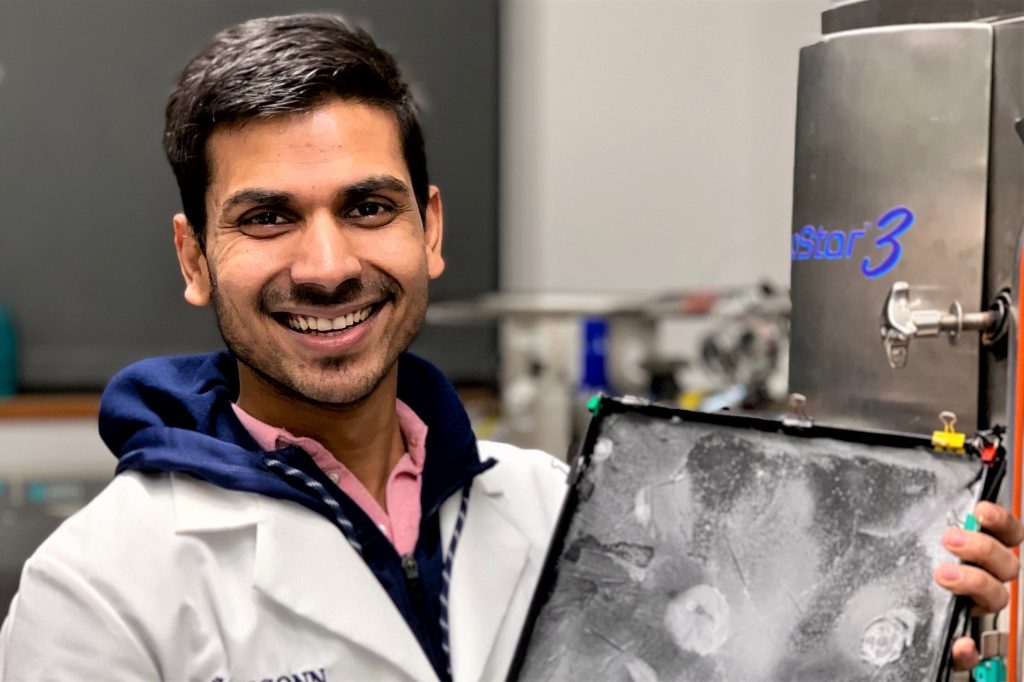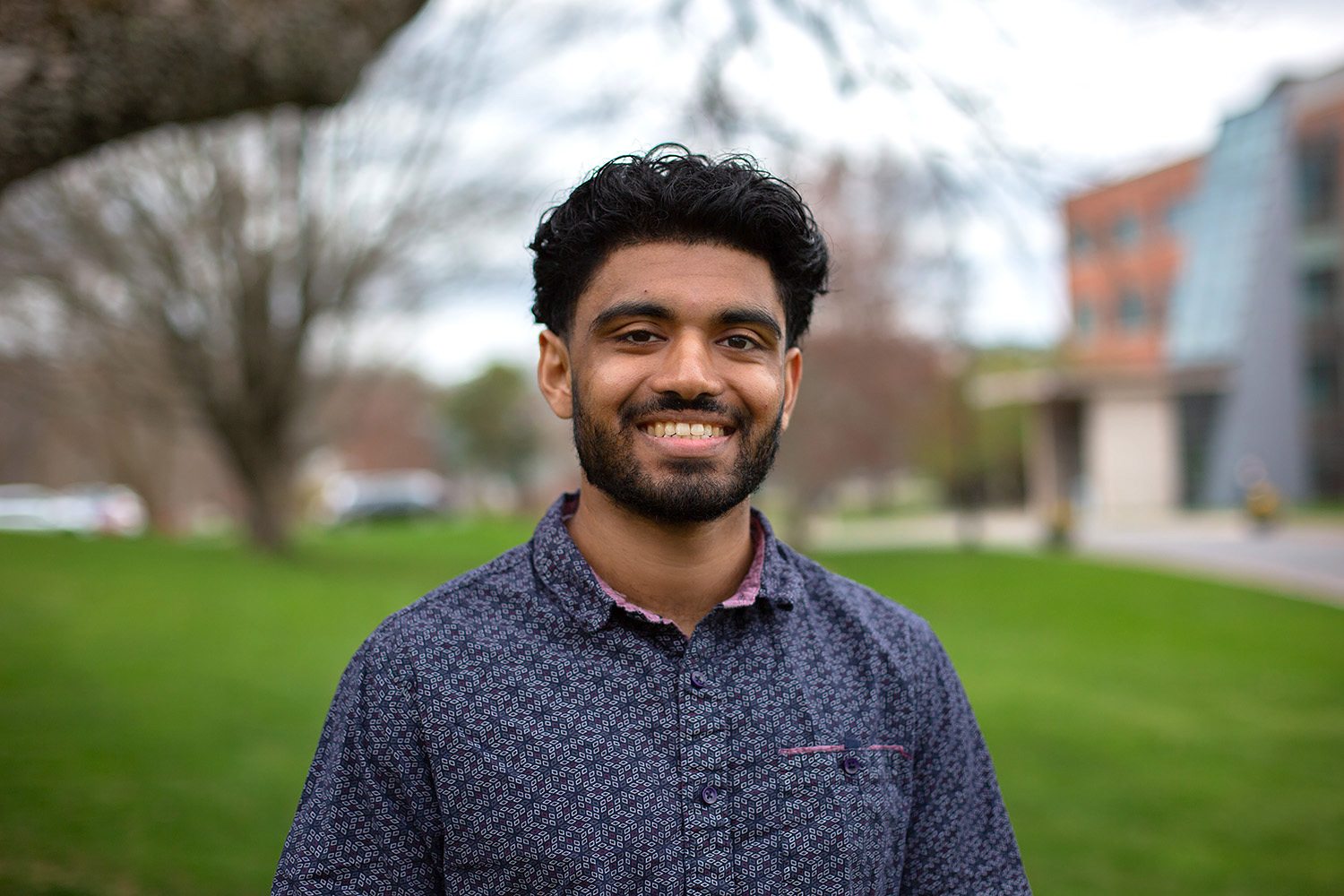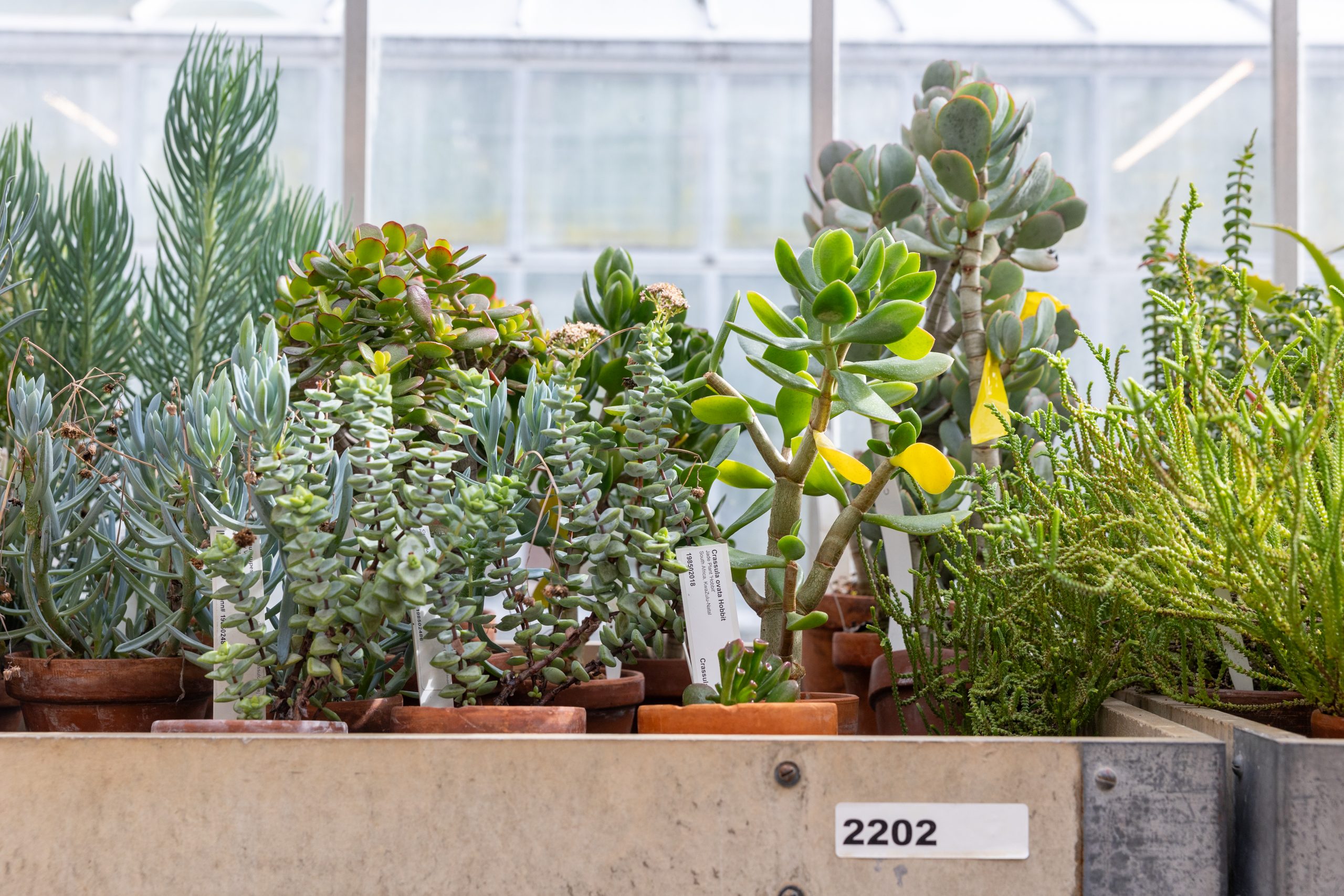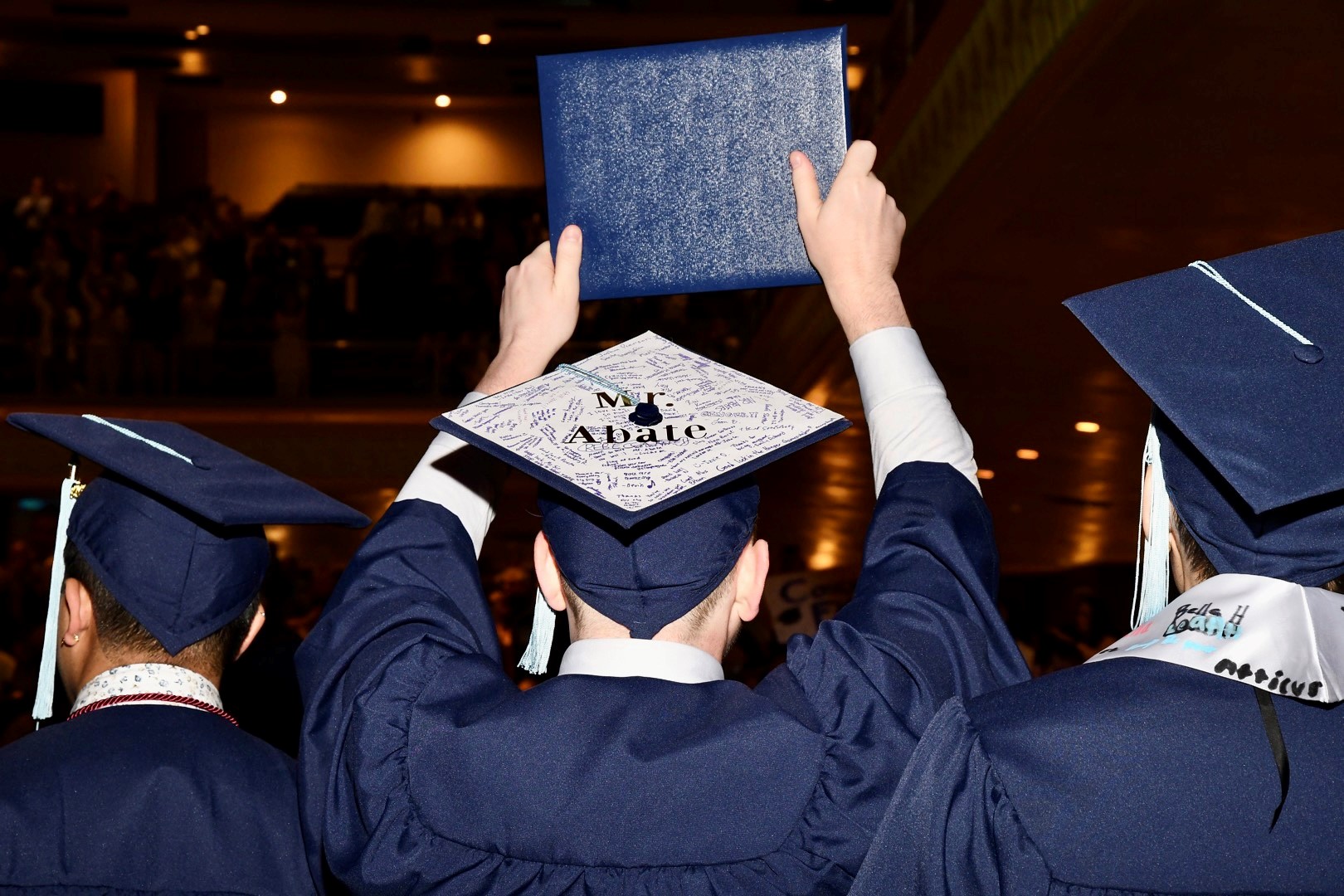(3MT®You may have heard of the elevator pitch, a business idea presented to an investor in a very short amount of time. Imagine you are a graduate student immersed in a highly specialized STEM related research. You are knowledged and fluent in your subject but when you explain it to non-scientists, you get puzzled looks. Could you summarize what you are doing in laymen’s terms – in just three minutes?
Two Ph.D. candidates in the Department of Pharmaceutical Sciences have proven they can do just that. Koyel Sen and Anand Gupta came in first and third, respectively, in UConn’s Three Minute Thesis (3MT®) competition sponsored by The Graduate School at UConn.
Koyel Sen
For Sen, this means that a video of her explanation will compete for top honors with winning entries submitted by schools from all over the world – with her fellow graduate students seeking recognition for what they can say in 180 seconds.
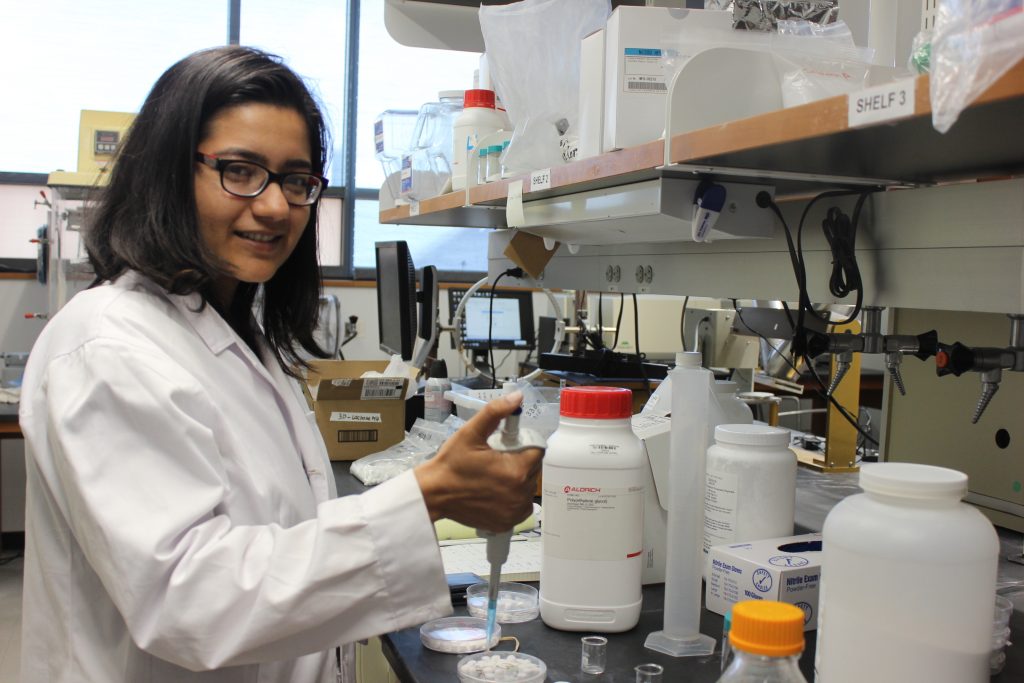
Sen’s thesis is about 3D printing of solid dosage forms and how this impacts society. Gupta’s is about automated manufacturing of anti-cancer products in a “universal language”.
The Three Minute Thesis (3MT®) competition was originally conceived by the University of Queensland in 2008. Now administered by Universitas 21 (U21), a leading global network of research-intensive universities, the competition challenges students to communicate the significance of their projects in clear, concise language. The only graphic allowed is a single, static slide. Nothing extra in the way of costumes, props, or sound is allowed. It’s just one student at a time describing a complicated subject in three fleeting minutes.
Why 3 minutes?
Stuart Duncan, Director of Fellowships, Outreach and Programming at The Graduate School says that while there is considerable fun involved for students trying to explain their topics without the use of academic jargon, audio, or video support, there’s a serious purpose to the competition, as well.
Duncan says, “These students will eventually meet with hiring committees or be involved with raising money to fund their research. They may have to explain what they are doing to the media or to step into a classroom filled with undergraduates new to their field. The importance of good communication cannot be underestimated. We’re here to help our graduate students meet their goals, and the 3MT® is one way to do that.”
Sen agrees with Duncan. She says, “Participating in the three minute thesis competition has been one of the highlights of my Ph.D. studies. Although I have always been passionate about my work, I am not very good at public speaking and I have always felt there has been a gap in conveying exactly what I am doing in my research.”
The judges of UConn’s competition obviously disagreed with Sen about her public speaking ability; all ranked her at the top of their lists. The panel consisted of Rory McGloin, Assistant Professor and Director of Undergraduate Studies in the Department of Communication; Janine Ciera, Distinguished Professor of Ecology and Evolutionary Biology; Heather McDonald, Assistant Vice President for Development at the UConn Foundation, and EEB Ph.D. candidate Tanisha Williams who was last year’s second place winner in the competition.
Sen added, “The competition pushed me to explore this gap where I got to be more creative … the journey of 3MT® was pretty amazing as well because I got to practice my communications skills with some brilliant [UConn] experts. I also learned to have fun while presenting. Above all, I got to know about so many amazing research projects that have been going on in the other departments at UConn.”
Anand Gupta
Gupta also had a positive experience, one he found particularly challenging due to his innate enthusiasm and willingness to talk about his thesis.
He says, “It is always a struggle for a scientist to explain their work and its overarching impact to their friends and family and I was no different. I have always been a very gregarious person but never realized how I would switch to jargon mode when I started speaking about science; it was off-putting to my audience and left me feeling disconnected with them.
“The competition came as an opportunity disguised as a challenge — ultimately becoming one of the most rewarding experiences of my Ph.D. life. It was stressful yet fun learning how to gauge, connect and excite such a diverse audience in just about 180 seconds. 3MT® truly led me to think beyond my perspective and create a holistic yet compelling story about the impact created by my work.”
Sen summed it up for both students when she said, “I would highly recommend every grad student to be a part of this journey as you will realize how amazing it is once you come out to the other side.”
Bodhi Chaudhuri, Associate Professor of Pharmaceutics and Diane Burgess, Distinguished Professor of Pharmaceutics are advisors to Sen and Gupta, respectively. They share their students’ enthusiasm and recommend the competition across majors and areas of expertise.
Top prize for 3MT® is $2,500 and will be announced on October 14. Voting for the People’s Choice award lasts from September 23 to October 7. The prize for this award is $300 plus considerable bragging rights. The link to the competition can be found on the Universitas 21 website.

